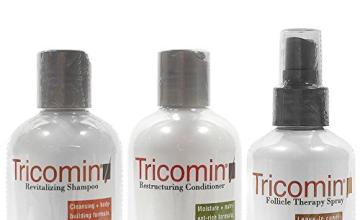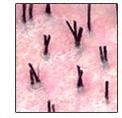Hair loss - Race, Age, and Gender Considerations

Hair loss is a universal condition, affecting all ages, races, genders and nationalities. It’s estimated that “androgenetic alopecia,” or male and female pattern baldness affects 35 million men and 21 million women in the United States alone. This section examines how race, age and gender affect hair loss.
Race and Hair Loss
In physiological terms, human beings are all composed of the same bones, muscles, and everything else down to the cellular level. But there are specific differences.
Hair, in all of its variations, is one area in which human beings display their differences. Hair follicles can widely vary in terms of color, length, shape, thickness, strength and various other factors.
There are many ethnic groups to consider. But we will focus on the special considerations of Asians, Blacks (of African descent) and Caucasians.
Asian Hair Loss Considerations
Asian people typically have very straight hair. Their scalps contain fewer hairs per square centimeter, they actually have a lower hair density than that of Caucasian hair follicles. But because the individual hair follicles of East Asians are thicker, this gives the look and impression of greater hair density.
For these reasons, hair restoration techniques for East Asians, much like other races, must be sensitive to a variety of anatomic and cultural differences. For instance, East Asian females often have an increased likelihood of developing “diffuse alopecia,” or hair that thins evenly over the entire head than Caucasian females.
Even though it’s not a definite requirement, it’s very helpful for Asian patients to seek out doctors with experience in Asian hair.
Another consideration for East Asians considering hair restoration surgery is the increased chance of developing keloid scars. A keloid is a thick, irregularly shaped and elevated scar with uncontrolled growth that results from excess fibrous skin tissue. East Asians typically have a greater likelihood of keloid development than Caucasians, but less than that of people of African descent. Therefore, before undergoing surgery, East Asians may want to consider being medically evaluated for keloids.
African Hair Loss Considerations
People of African descent usually possess naturally curly hair. This curly hair gives the visual impression of increased hair density for a given amount of hair, which is beneficial in hair restoration surgery.
The hair follicles beneath the skin of people of African decent also typically curve more than Caucasians. This can make harvesting the donor hairs, without severing or transecting the hair follicles beneath the scalp, more difficult. A hair restoration physician needs to be very aware of this difference and adjust to its requirements.
As in the case of East Asians, people of African descent possess some unique hair and skin characteristics. Some of these medical conditions are more common in black skin than in white skin. This may increase the risk for post-surgical complications.
Those of African descent have a higher chance of developing keloid scarring when injured. This in turn leads to a greater chance of noticeable donor scars. Keloids aren’t a widespread problem. But those with a history of them are carefully evaluated in regard to their existing scars. The evaluation usually involves a small "test procedure" to determine if there’s a normal healing rate.
Another issue is that of postoperative skin discoloration. With darker skin, there’s often a greater risk of both increased and decreased skin color after injury or surgery. These risks can be determined by the patient’s medical and family history.
Ingrown hairs are also a more common problem in darker skin. If a patient has a history of ingrown hairs or other minor skin infections, this may signal a higher risk for ingrown hairs post-hair restoration surgery. Again, this risk can be determined by a small test procedure.
Caucasian Hair Considerations
Caucasians (white people) may have a wide range of hair and skin types. However, if someone has dense and or coarse hair, as well as skin color similar to their hair color, they will generally achieve the best results for a given amount of restored hair.
Learn more about aging and gender hair loss


















